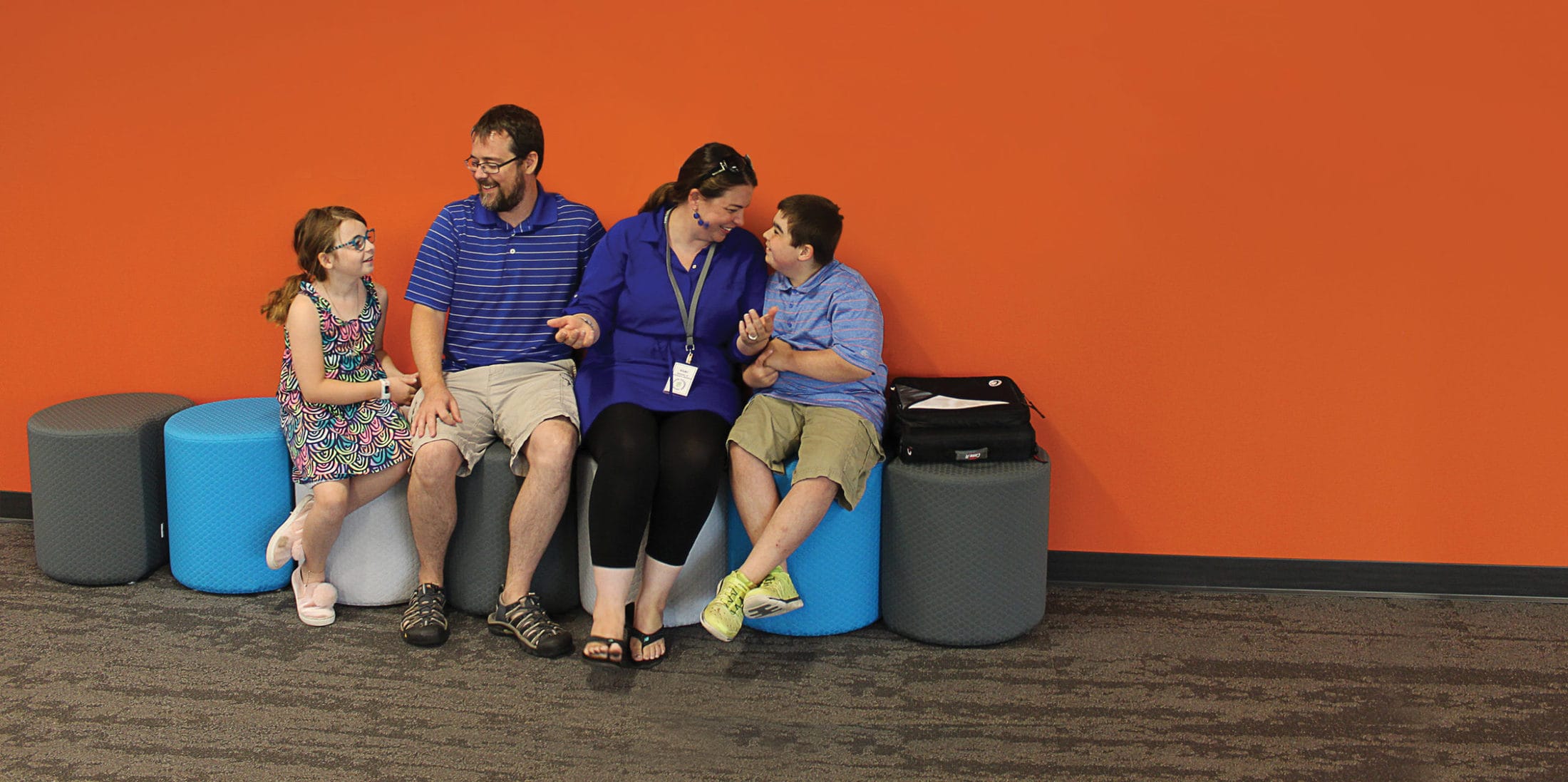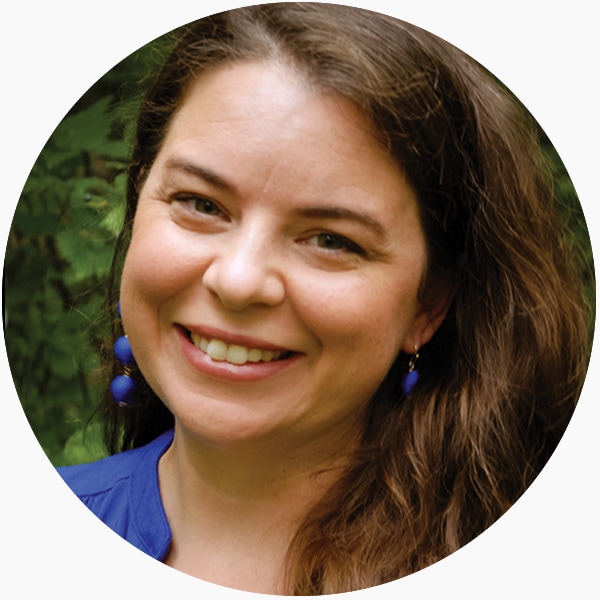Navigating Church with Special Needs
My son James was born 13 years ago on a hot July morning. When he was placed into my waiting arms, white striped knit cap on his head, I looked into his large eyes framed with long lashes, and I knew this boy was going to radically shape my life.
There were giggles, crying, diapers, and spit-up—and my husband, Dave, and I were immediately in love. But there were also frequent trips to the doctor and hospital, diaries of liquids and syringes, nebulizers, and a new phrase: “failure to thrive.” That first year, James had a great laugh but no words. External stimuli, such as noises and textures, seemed to bother him. Later came seizures and surgeries. Some overarching medical issue was causing James’s myriad of symptoms, but no physician was able to identify exactly what was wrong.
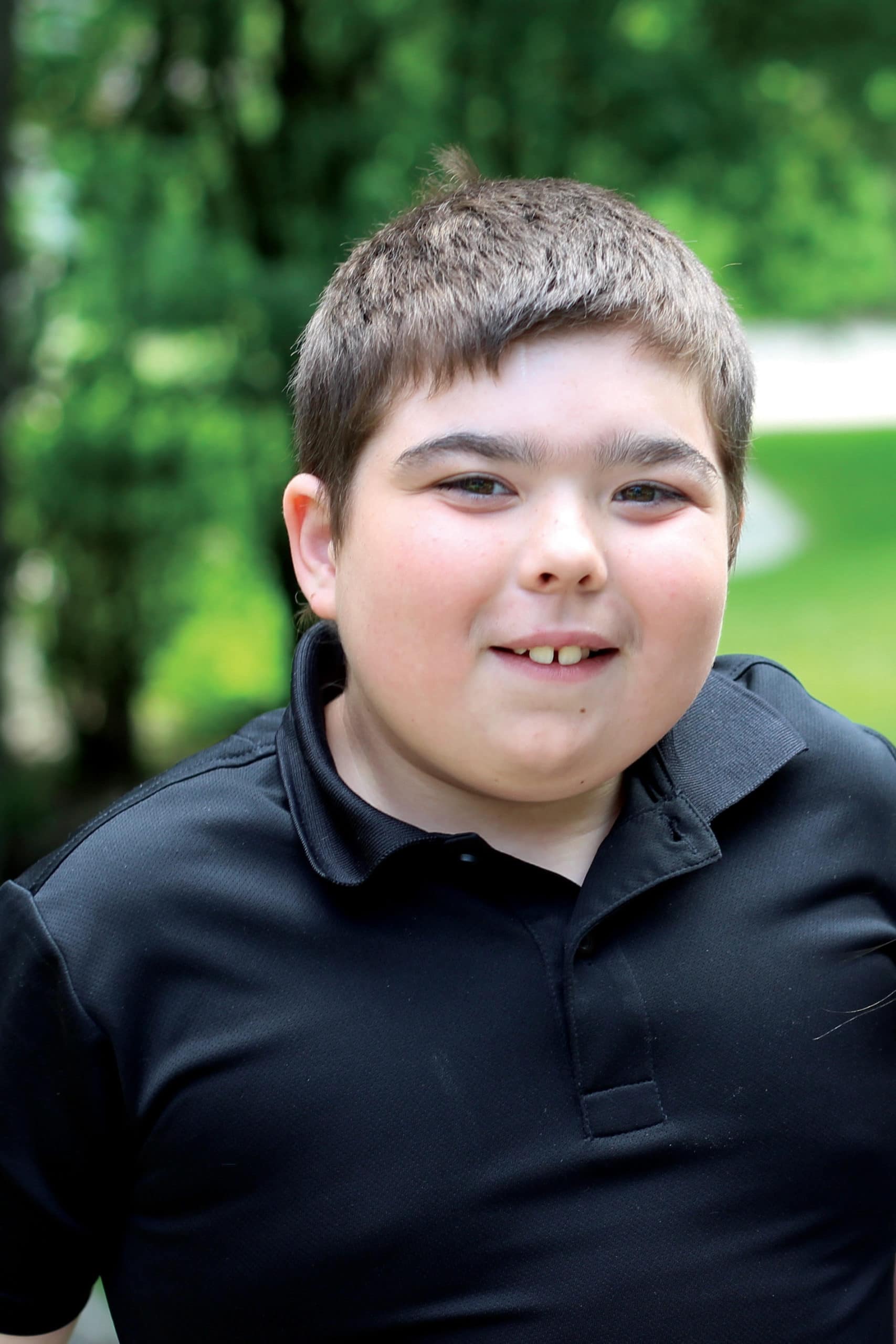
When James was six months old, we moved to the Twin Cities. Even as I reveled in the joy of motherhood, my days were often lonely and overwhelming. I cried out to Jesus to hold us, bring us hope, and give us peace. I knew a good, good God knit James together with intent, purpose, and delight as declared in Psalm 139. Thankfully, God was also building a team of family, friends, and our new church, Faith Covenant in Burnsville, to walk with us through this journey.
Tiny James was so far off the growth chart that he didn’t have the reserves to fight off illness. Every bug landed him in the ER with IVs or breathing treatments. Our pediatrician’s office dubbed the back rooms the “Newendorp Wing” because we were there so often.
So we weren’t especially surprised when our pediatrician suggested that we quarantine James for the viral season when he was about a year and a half old. That meant no large groups of people or being around “germy” environments. We had to miss several significant family and friend events. At church, Dave and I would tag team—one of us would go to church while the other stayed home with James.
As we entered into Advent, I longed to experience the candlelight and songs of celebration. Emmanuel meant “God with us,” and my heart needed that reminder. Jim, our pediatrician with whom we were on a first-name basis, told us we could probably attend a Christmas Eve service if we slipped into the back of the sanctuary after the service started and left before it ended. So on December 24, I dressed James in an adorable outfit complete with matching cap, and we arrived during the first carol. We were in church together for the first time in months.
What 17-month-old James could not express with words and speech, he tried to make up for in coos and sounds. I looked on with tenderness as my son tried to express himself to a world that had not yet heard his voice. Dave and I leaned into each other.
The couple in front of us turned around a few times as James babbled. We tried to quiet him, but he continued. Eventually the woman turned and said, “We have a nursery for little ones—you should use it.” I apologized, my eyes filling with tears. I hastily penned her a note, letting her know that I was so sorry if our son was disturbing them—and explained that he was medically fragile, could not use the nursery, and that were at church together for the first time in a long time.
I was devastated. This church had become a lifeline for us as we navigated the complicated world of special needs. Now it no longer felt safe.
The woman later apologized, and over time God helped heal my heart. But the lesson was not lost on me: we never know what is happening in the life of someone who walks through our doors.
“Through it all our church has loved us well.”
As James grew, we discovered that he loved trucks and airplanes. We watched his eyes turn green and hair darken as he got older, and he eventually uttered some of those words we dreamed of hearing. With great joy, our family affectionately said, “I ee oo” (translation: “I love you”) to one another. We also learned other things about him—epilepsy, pulmonary challenges, developmental delays, communication disorders, sensory processing needs, and other medical complexities, including an enlarged aortic root in his heart. We began seeing specialists and therapists through two local children’s hospitals. It wasn’t until March of 2015, when he was eight years old, that James was finally diagnosed with Rubinstein-Taybi Syndrome, a rare chromosomal disorder and the umbrella over all his other medical and developmental challenges.
Through it all our church has loved us well. When James was little, a wonderful volunteer named Lesley attended Sunday school with him regularly. Megan, Tabi, and several other amazing personal care attendants for James were young adults from the church. People, like the couple from that Christmas Eve service, cheer him on and warmly greet him each week. One woman in the church, Jan, goes out of her way to love our daughter, Emilie, who was born when James was three years old. Jan knows that siblings of children with special needs also need extra love. Our church family has laughed with us, cried with us, prayed with us, and helped meet our practical needs.
One in five people in the U.S. are touched by disability according to the 2010 census, and preliminary numbers for 2019 are suggesting one in four. Nearly 1 billion people around the world live with disability. Some say the largest unreached people group in the world are those affected by disability and their caregivers.
I believe God is calling the church to love justice and do mercy in ministry to individuals and families touched by disability. It’s not a one-size-fits-all venture. It’s not about creating the perfect program. Rather, we start with people, one person at a time. Just as people are unique, so will each ministry, whether it be formal or informal, be unique to its own setting.
At Faith Covenant we’ve placed sensory tools in our lobby and classrooms, such as small fidgets to give fingers something to do, noise canceling headphones to mute music or sounds that are too loud, and a weighted compression vest that gives its wearer a “hug” and helps calm the body. We have people on hand to navigate Sunday mornings with those who need a buddy.
During our recent remodel, we were able to make our main level ADA-compliant, with accessible aisles, bathrooms, and counters at our welcome desks and coffee shops. We know it is important to make the hope of the gospel accessible to each one who walks through our doors. With that in mind, we built a sensory room in our children’s wing, thanks to generous gifts from people in the congregation and a grant from Joni and Friends, a nonprofit focused on equipping churches to serve people affected by disabilities.
We see more and more kids in church with varying needs. We don’t have it all figured out yet. But I am excited to see how God continues to lead our church in this area. What a joy to experience the whole body of Christ—every person, every part.
Every church’s story of disability ministry needs to stem from Scripture, the work of the Holy Spirit, and the needs of the families within that church and community. My friend Jared, parent to Levi who has Down syndrome, says, “coming alongside individuals and families affected by disability in many cases will not be convenient, easy, or predictable…needs are going to ebb and flow, changing from season to season.”
As we trust God to love families well, we ask God to show us the next best step. Consider these ideas:
Pray, asking God for eyes to see people and love them well—and that the Spirit of God would minister tenderly to this people group.
Reach out to a family affected by disability/special needs. Get to know them. Ask them what their needs are. Look for ways to come alongside them. Give them a safe place to land. Give them a place to belong, grow, and serve.
With humility, be a learner. Seek to grow in understanding. Organizations such as Joni and Friends and Key Ministries provide free training and resources for churches. Hold space for these important conversations.
A couple of weeks ago, James was singing at church, eyes glowing, a big grin on his face, and his hand in the air as he danced to the music. We again looked down tenderly at him and the voice that now shouts to the world with gusto. His rumpled brown hair bounced to the words he has taken to heart: “This is amazing grace, this is unfailing love / that you would take my place, that you would bear my cross. / You would lay down your life that I would be set free. / Jesus, I sing for all that you’ve done for me!”
James can tell you that Jesus loves him, and he taps his chest when we ask him where God is. He has taught me fresh ways to understand that every person is “fearfully and wonderfully made.”
As the church, we have been called to love all people. If we miss the opportunity to embrace and love people like James, we miss a part of God’s heart. James has radically changed my life in all the best possible ways, and he’s changing the church too.
Special Grace
Covenant Church of Thomaston, Connecticut
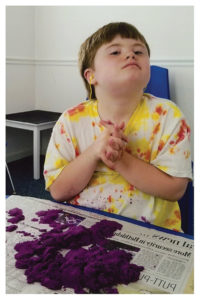 After hearing from parents of children with differing abilities that they feel unable to attend church, Brenda Tousignant, a board-certified music therapist and member of the Covenant church in Thomaston, Connecticut, began to dream of providing space for all people to worship.
After hearing from parents of children with differing abilities that they feel unable to attend church, Brenda Tousignant, a board-certified music therapist and member of the Covenant church in Thomaston, Connecticut, began to dream of providing space for all people to worship.
“I talked to one person who said she used to listen to the worship serv-ice from her church’s nursery, but now her child is too big for the nursery,” says Tousignant. “She doesn’t feel like she has anywhere to go for church.”
So Tousignant approached her pastor about starting Special Grace, a one-hour program with music, Bible stories, crafts, and work centers with sensory activities for children, teens, and young adults with special needs. She got the go-ahead to use the church for a monthly Saturday meeting. The three volunteers who run the program provide all the supplies, so Special Grace is able to operate at no additional cost to the congregation.
Attendance ranges anywhere from two to six people. Tousignant says Special Grace’s biggest challenge is letting the community know about their events. She has found word of mouth to be the most effective way of getting people through the door. She encourages other churches interested in starting their own programs to reach out to people with creativity and flexibility.
As with many ministries, Tousignant says, “I think those of us leading the program get far more out of it than the people we are there to serve.”
Buddies
Metro Community Church Englewood, New Jersey
Metro Community Church started their special needs ministry with just two families, each paired with a “buddy,” when Shirley You was the children’s pastor. Then two years ago, lead pastor Peter Ahn, aware of You’s background teaching special education, called her into his office to ask if she would pray about starting a special needs ministry at the church.
“I took time to pray,” says You, “but it was a no-brainer.”
Five months later, she began a special needs ministry with a prayer group. You dedicated one year to learning, researching, and networking with others. She then began to educate her church, and a Special Needs Awareness Sunday opened the church to relationships with special needs families. “Since then, when our children with special needs walk through the hallways, they are greeted by so many people that they walk like they own the church!” says You.
A pool of 20 volunteers serve the eight families who now regularly attend the church, so each child has two buddies. On a typical Sunday, buddies are waiting to welcome each child. They pick up a bag of sensory objects together and join the other children in the service. If a child becomes restless or overstimulated, the buddy takes the child for a walk or to the physical therapy/occupational therapy room where there are mats, a trampoline, exercise balls, and other sensory tools. Once their needs are met, they return to the large group. Social interaction is encouraged according to each child’s comfort level.
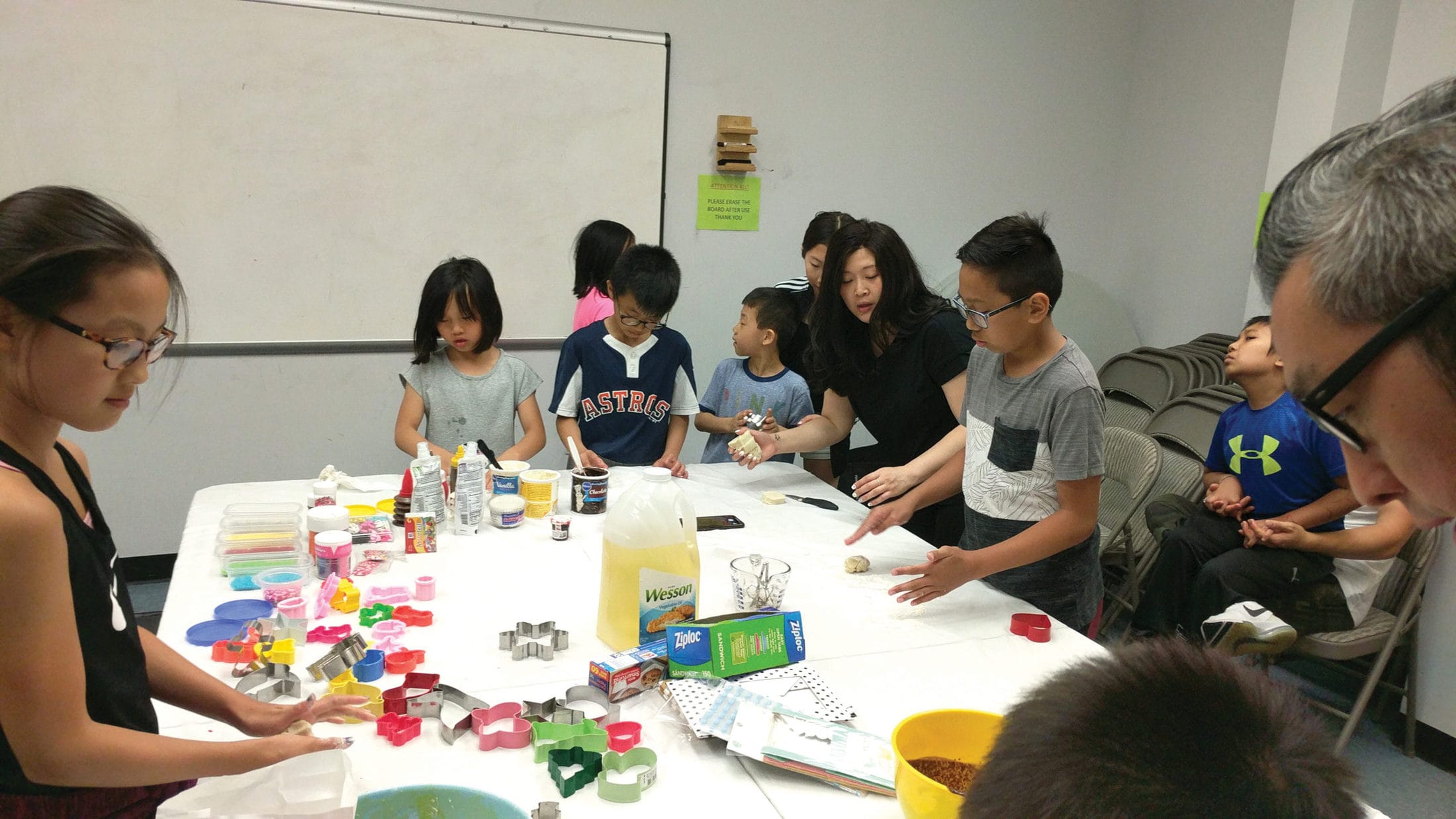
Background checks and parental permissions are essential to the buddy program. You meets with potential buddies and then, after prayerful discernment, pairs each volunteer with a child. A meeting is set for the parents and child to officially meet the new buddy. You shadows the volunteer until they are comfortable with the child on their own and then continues to check in.
The church also offers respite events when parents can drop off their children who have special needs, along with their siblings, to hang out for three hours. Parent support meetings provide a space for parents to share and pray with the team while buddies spend time with the children.
“I believe this is what heaven looks like. I think children with special needs are actually closer to Jesus than the rest of us,” You says. “I get to see that up-close each week and be blessed by them while we serve them. I couldn’t ask for anything more!”
For further reading, Vicki Newendorp recommends the following blogs.
Emily Colson
emilycolson.com
Heather Avis
heatheravis.com
Jolene Philo
differentdream.com
Sandra Peoples
sandrapeoples.com
Lisa Jamieson
lisajamieson.org
Emily P Freeman
emilypfreeman.com
Diane Dokko Kim
dianedokkokim.com


